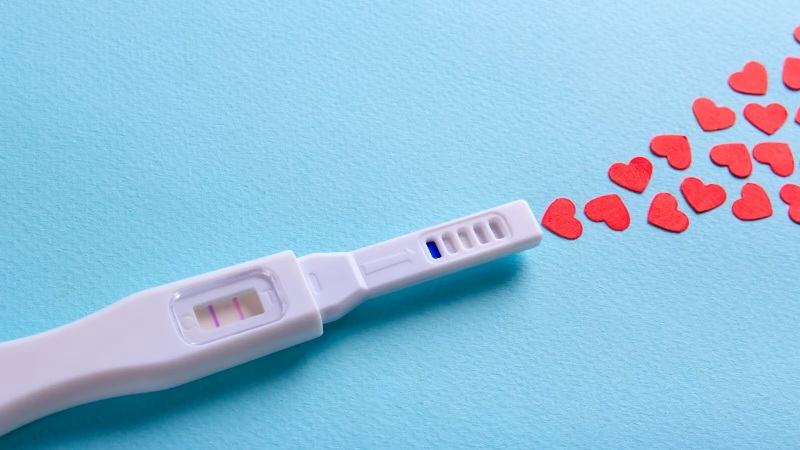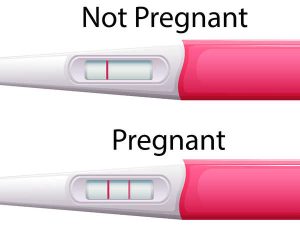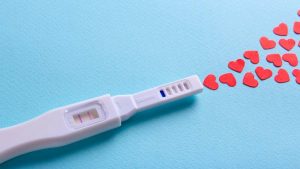If you have ever wondered whether you are pregnant or not, you might have used a pregnancy test kit to find out. These kits are widely available and easy to use, but how do they work? What is the science behind them? In this blog post, we will explain the basics of pregnancy tests and how they detect pregnancy with such a high rate of accuracy.
Pregnancy tests check your urine or blood for a hormone called human chorionic gonadotropin (hCG). This hormone is produced by the cells that form the placenta, which is the organ that nourishes and supports the developing embryo. hCG is released into the bloodstream and urine soon after the fertilized egg implants in the lining of the uterus, usually about six days after ovulation.
There are two main types of pregnancy tests: blood tests and urine tests. Blood tests are done at a doctor’s office and can detect hCG as early as six to eight days after ovulation. They can also measure the exact amount of hCG in your blood, which can help monitor the progress of your pregnancy or diagnose any problems. Urine tests are done at home or at a clinic and can detect hCG as early as 10 days after ovulation, depending on the sensitivity of the test. They are usually cheaper and more convenient than blood tests, but they can also give false results if not done correctly.
Both types of pregnancy tests work by using antibodies that bind to hCG. Antibodies are proteins that recognize and attach to specific molecules, such as hormones, bacteria, or viruses. When an antibody binds to hCG, it triggers a chemical reaction that produces a visible signal, such as a color change, a line, or a symbol. The signal indicates whether hCG is present or not, and therefore whether you are pregnant or not.
However, not all pregnancy tests are equally reliable. Some factors that can affect the accuracy of pregnancy tests include:
– The timing of the test: If you take a pregnancy test too early, before your body has produced enough hCG, you might get a negative result even if you are pregnant. It is best to wait until the first day of your missed period to take a urine test, or follow the instructions on the package carefully.
– The quality of the test: Different brands and models of pregnancy tests have different levels of sensitivity and specificity. Sensitivity refers to how well a test can detect low levels of hCG, while specificity refers to how well a test can distinguish hCG from other substances that might interfere with the results. You should look for pregnancy tests that have high sensitivity and specificity ratings, and check the expiration date before using them.
– The method of the test: How you collect and handle your urine or blood sample can also affect the results of your pregnancy test. You should follow the directions on the package carefully and avoid contaminating or diluting your sample. You should also read the results within the time frame specified by the manufacturer, as waiting too long or too short can cause false readings.
Pregnancy tests are an amazing example of how science can help us answer important questions about our health and well-being. By understanding how they work and how to use them properly, we can make informed decisions about our reproductive choices and plan for our future.





